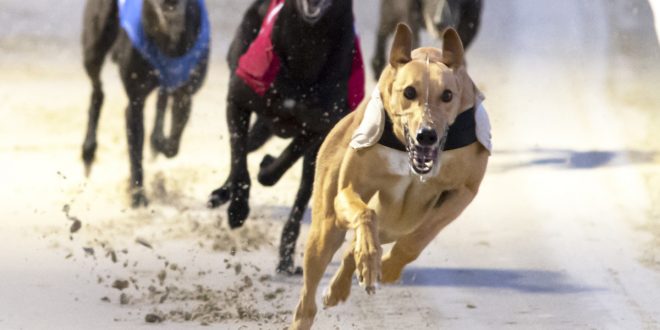Three prominent UK animal welfare charities – the RSPCA, Blue Cross and Dogs Trust – have called for a permanent ban on greyhound racing, prompting harsh criticism from the Greyhound Board of Great Britain (GBGB).
In the trio’s joint statement, they cited GBGB data showing that over 2,000 greyhounds died and nearly 18,000 were injured between 2018 and 2021, whilst further injuries occurred at independent tracks outside the body’s oversight.
The groups also acknowledged that although they have for some years been working with dog racing stakeholders to improve welfare conditions, there are issues which ‘have not and cannot be resolved’, requiring an outright ban on the sport.
“It’s shocking that more than one dog a day is dying due to racing which our review has determined is inherently unsafe and compromises their welfare at almost every stage of their lives; it simply isn’t acceptable,” said RSPCA Chief Executive Chris Sherwood.
“We’ve tried to work with the industry over the years to bring in better protection and improve welfare for the dogs but we’re not satisfied that enough progress has been made.
“We feel that now, moving forwards, the only way we can secure good lives for these dogs is to call for the sport to be phased out and we want to see greyhound racing consigned to the past.”
Under the proposed time frame, greyhound racing would be phased out over a five-year period to allow both greyhound authorities and charities to make preparations for welfare and rehoming, whilst in Wales, where there is just one racetrack, the sport could be ended within one year.
Both Owen Sharp, Dogs Trust Chief Executive, and Chris Burghes, Blue Cross Chief Executive, have stated that their respective charities remain committed to working with the industry to maintain welfare conditions and implement a phased out of the sport.
However, in its own response, the GBGB’s CEO, Mark Bird, and Chair, Jeremy Cooper, described the charities’ call as both ‘ludicrous’ and ‘ill-conceived’, condemning the proposals as ‘the agenda of animal rights executives’.
“It is ludicrous that the agenda of animal rights extremists are being given credence within these charities,” Bird remarked, citing the GBGB’s Greyhound Commitment, which has reduced track deaths from 0.06% to 0.03% between 2018 and 2021.
“Welfare standards in licensed greyhound racing have improved dramatically over the past four years which is why this report fails to create an evidence-based case for reform.”
“As the sport’s regulator we know there is no room for complacency around welfare, which is why we have built on this through our long-term strategy “A Good Life for Every Greyhound”.
“This has been developed with the input of leading academics and veterinarians and has been welcomed across the political spectrum as a detailed plan for driving forward welfare standards further still.”
Concerns cited by the charities include greyhounds racing under ‘extreme weather conditions’, and inadequate standards in both kennelling and living conditions as well as transportation to and from fixtures.
Additionally, the trio have accused the sport of ineffective regulation, including a lack of transparency on industry practices and enforcement of standards, and an absence of ‘consistent source of income’ for the sector hindering improvements.
The GBGB has, however, defended its record – such as Bird’s references to the Greyhound Commitment and improving welfare standards – as has Professor Madeleine Campbell, author of the “A Good Life for Every Greyhound” strategy.
Prof Campbell argues that the GBGB’s welfare approach is ‘world class’, having been welcomed ‘across the political spectrum’ and informed by input from academics, specialists, vets and animal welfare experts.
In contrast, the professor criticised the RSPCA, Blue Cross and Dogs Trust for failing to publish ‘any information’ about their own internal review, which came to the conclusions listed above.
GBGB Chair Cooper added: “We are fortunate that all the major political parties see through the tactics of the RSPCA, Blue Cross and Dogs Trust and have welcomed our approach to regulation and welfare.
“Their internal review is an amateur exercise in trying to make political capital rather than a data and fact-led approach to welfare. It is sad and disappointing that once respected animal charities have succumbed to the agendas of the extremists.
“Families and individuals who support these charities will be shocked that they are spending the money they donate on pursuing this activist agenda, rather than focusing on the pressing need to protect household pets that owners are unable to afford to keep. It says everything about what is wrong with these charities and nothing about animal welfare.”









